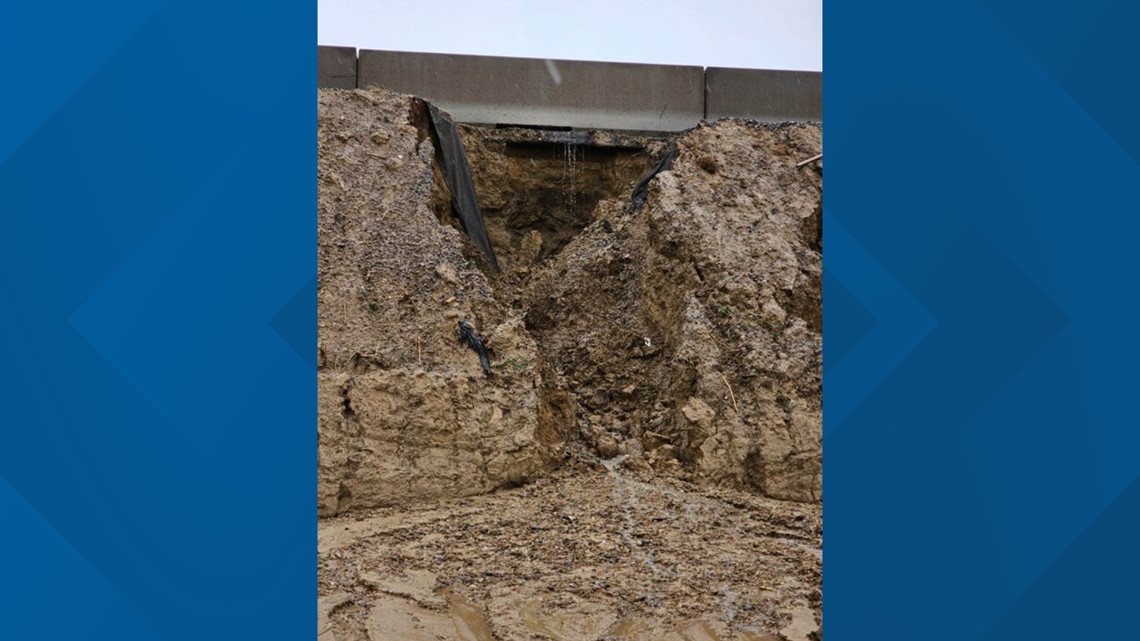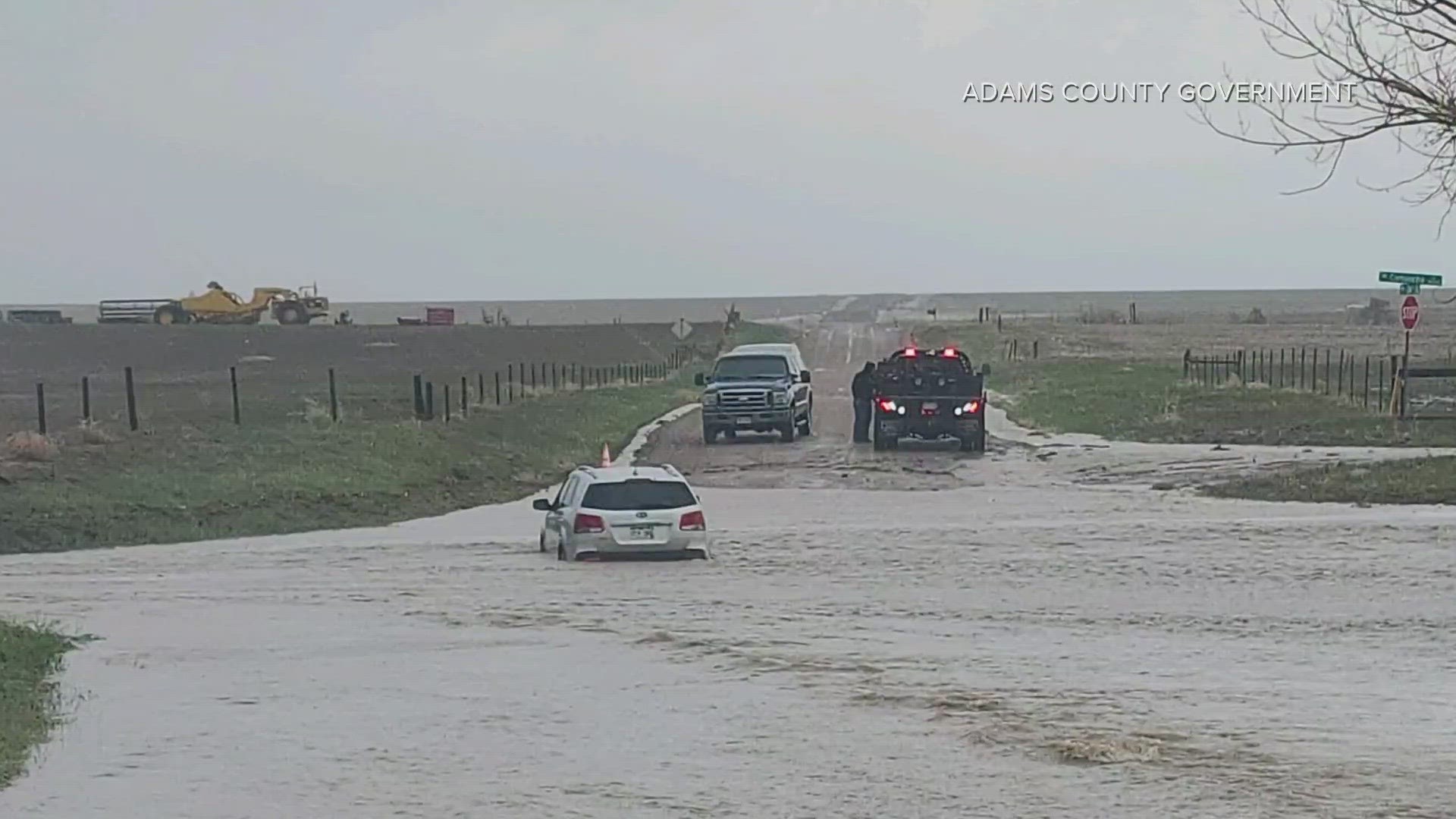DENVER — A Flood Watch covered the entire Denver area through Friday afternoon, while the metro recovered from flooding caused by three days of severe weather.
A relatively unusual long-duration rain event dropped totals of 3 and even 4 inches of rainfall across the southeast Denver metro area, a significant amount of rain. Flood advisories and warnings were in effect for parts of the metro through 5 p.m.
For context, Denver averages only about 14 or 15 inches of precipitation (rain and melted snow equivalent) in a full calendar year.
A new record of daily rainfall of 2.92 inches at the Denver International Airport (DIA) on Thursday shattered the previous record of 1.55 inches in 2011.
Streams, creeks, and smaller bodies of water hold the highest risk for flooding. Many low-lying areas encountered flooding on Thursday and Friday.
The Colorado Department of Transportation (CDOT) reported a closure of one southbound lane of I-25 from Larimer County Road 16 to Colorado Highway 56. Soil under the interstate had washed out, creating a concern over the road's stability. The lane closure was expected to continue through at least 6 p.m.


The Aurora Police Department (APD) tweeted the closure of northbound lanes of South Havana Street at East Alameda Avenue on Friday morning. Both directions of East Alameda Avenue were closed at the intersection as well.
The flooding knocked out power in the area, according to APD. About 4 p.m., APD tweeted that power was restored and all lanes were reopened.
APD also said the area around East 6th Avenue and Powhattan Road was closed with no estimated time of reopening.
The Adams County government and Arapahoe County Sheriff's Office tweeted Thursday afternoon that the rain had caused several roads to be closed to the public.
Denver Parks and Recreation said many trails along waterways are flooded.
If you come up to a water-covered roadway, find an alternate route. The general rule of thumb is if you can't see to the bottom of the road, it's too deep to pass through. Water is heavier than you might think: It only takes about 6-12 inches of water to float your vehicle (depending on its weight).
On the positive side, this rain will make a substantial dent in our drought. With a widespread 1-4 inches of rain across eastern Colorado likely this week, the moderate and severe drought conditions plaguing the region will see significant improvement.
SUGGESTED VIDEOS: Severe Weather

